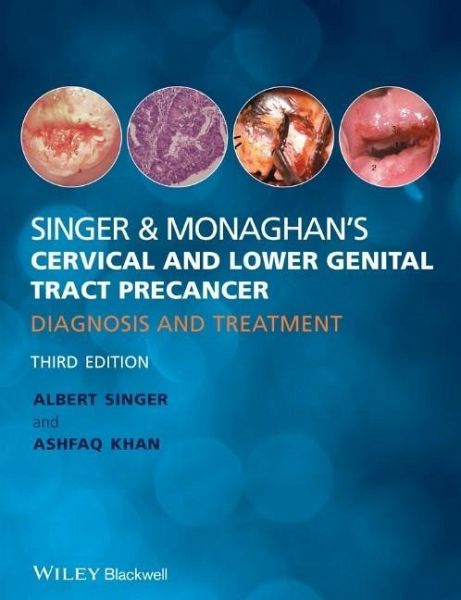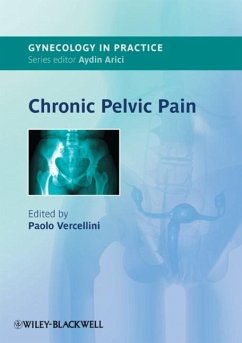Nicht lieferbar

Singer and Monaghan's Cervical and Lower Genital Tract Precancer
Diagnosis and Treatment
Versandkostenfrei!
Nicht lieferbar
Weitere Ausgaben:
The guide to effective practice management of precancerous lesions in cervix and lower genital tract.This third edition contains in-depth examination of the different modalities that contribute to the safe and scientific management of precancerous lesions in the female genital tract. One of the most important is colposcopy which provides an accurate and effective route to their identification.Professor Albert Singer is internationally recognized as a master of colposcopy. His training courses throughout the world are in high demand. In this edition, he has teamed with fellow expert Ashfaq Khan...
The guide to effective practice management of precancerous lesions in cervix and lower genital tract.
This third edition contains in-depth examination of the different modalities that contribute to the safe and scientific management of precancerous lesions in the female genital tract. One of the most important is colposcopy which provides an accurate and effective route to their identification.
Professor Albert Singer is internationally recognized as a master of colposcopy. His training courses throughout the world are in high demand. In this edition, he has teamed with fellow expert Ashfaq Khan to present a very accessible, authoritative and highly illustrated guide to the power of colposcopy.
Practical pictorial guidance to recognizing potentially cancerous abnormalities in the cervix, vagina, and vulva is framed by internationally agreed disease classifications. Consensus guidelines from the US and Europe provide a rigorous platform for management advice. The latest information on HPV, the role of biomarkers, and new methods in diagnosis and treatment are all featured.
Cervical and Lower Genital Tract Precancer is the ideal companion for anyone wishing to incorporate safe and scientific methods of diagnosis and treatment into their clinical practice.
This third edition contains in-depth examination of the different modalities that contribute to the safe and scientific management of precancerous lesions in the female genital tract. One of the most important is colposcopy which provides an accurate and effective route to their identification.
Professor Albert Singer is internationally recognized as a master of colposcopy. His training courses throughout the world are in high demand. In this edition, he has teamed with fellow expert Ashfaq Khan to present a very accessible, authoritative and highly illustrated guide to the power of colposcopy.
Practical pictorial guidance to recognizing potentially cancerous abnormalities in the cervix, vagina, and vulva is framed by internationally agreed disease classifications. Consensus guidelines from the US and Europe provide a rigorous platform for management advice. The latest information on HPV, the role of biomarkers, and new methods in diagnosis and treatment are all featured.
Cervical and Lower Genital Tract Precancer is the ideal companion for anyone wishing to incorporate safe and scientific methods of diagnosis and treatment into their clinical practice.












